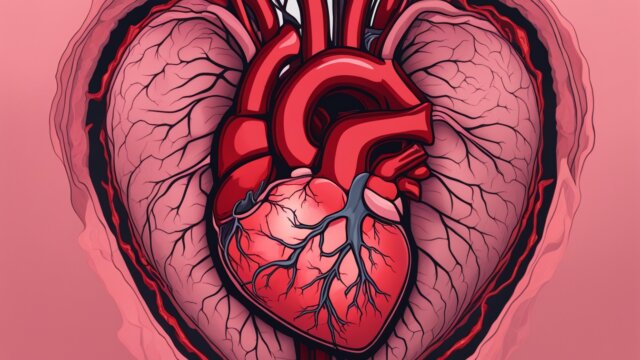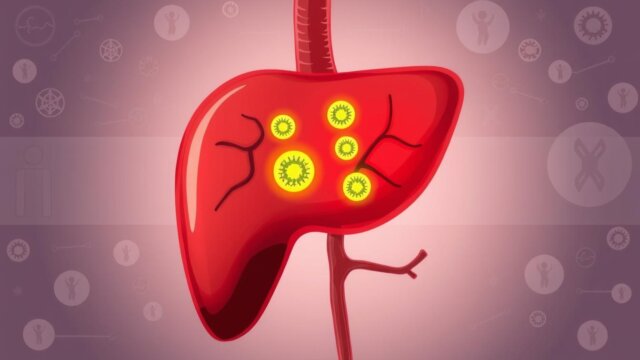FTC disclaimer: This post may contains affiliate links and we will be compensated if you click on a link and make a purchase.
Most people who suffer from asthma get chest tightness as well. It’s not just a coincidence. Many doctors believe that chest tightness and asthma go hand-in-hand.
This article will explain how chest tightness and asthma work together and why they often occur simultaneously. Understanding these connections can prevent you from having both problems at once.
We will also share the treatment required to help reduce your symptoms of chest tightness and asthma.
Chest Tightness and Asthma

What is chest tightness in Asthma?
Chest tightness is caused by inflammation and constriction of the airways. When the airways are inflamed, they become narrower and harder to breathe. This can lead to chest tightness, shortness of breath, and wheezing.
Chest tightness is considered a classic asthma symptom. When a person suffers from an asthma attack, he complains of tightness of the chest and senses painful pressure in the chest.
It should be noted that during an asthma attack, the person also suffers from other symptoms, such as coughing, wheezing, and shortness of breath.
When Chest Tightness Occurs in Asthma Patients?
Chest tightness occurs when the airways in the lungs are inflamed or filled with mucus. This leads to constriction, and the person cannot move air in and out of his lungs. The person may also feel anxious and further worsening his asthma condition.
When asthma patients are exposed to specific triggers, an occupational asthma irritant, or undergo vigorous physical exercise, they may suffer an asthma attack and feel chest tightness during the attack.
What causes chest tightness in Asthma patients?
Chest tightness is discomfort or pain that you feel anywhere in the front portion of your body between your neck and upper abdomen.
It should be noted that it can be caused due to pain caused by any organ in the chest, including the heart, lungs, esophagus, muscles, ribs, nerves, and tendons. It could also be related to certain digestive system problems, such as heartburn and pancreatitis.
It should be noted that if you suffer from chest tightness frequently, you need to consult a doctor immediately. This is because this symptom is associated with many diseases, such as heart disease, a chronic obstructive pulmonary disorder, and pulmonary embolism.
Therefore, this symptom should be accompanied by other classic asthma symptoms to determine if you are asthmatic.
How to diagnose chest tightness with Asthma?
On consulting a doctor, he will put forth the following set of questions:
- How often do you suffer from chest tightness?
- What are you doing when you suffer chest tightness?
- What gives you relief from chest tightness?
- Do other classic asthma symptoms accompany chest tightness?
- Can you describe the exact feeling of chest tightness?
Apart from answering these questions, your doctor will also ask you to undergo the following tests to determine if you are suffering from asthma or other ailment associated with chest tightness.
- Peak flow
- Complete blood count
- Spirometry
- Pulse oximetry
- Chest X-ray
- Complete pulmonary function testing
- Stress test
- Electrocardiogram
- echocardiogram
What are possible treatments for chest tightness with Asthma?
If you have already been diagnosed with asthma, then chest tightness indicates an impending asthma attack and poor asthma control.
Therefore, in this case, you need to modify your asthma action plan in consultation with your doctor. This will ensure that you manage your asthma efficiently to avoid chest tightness in the future.
Consumption of certain medications such as Dextran, Promit, and Gentran can cause chest tightness which need not be associated with an asthma attack.
Whenever you suffer from chest tightness, you need to apply ice at the center of your chest for relief.
Take some ice and place it in a small bag. Keep this in the middle of your chest. Allow the ice to remain on your chest for around 10 minutes.
One should rest and avoid exertion. One should also avoid exposure to allergens, cold weather, and other asthma triggers. If chest tightness persists, one should rush to the emergency room in a hospital.
Will an inhaler help with chest tightness?
When you have chest tightness, it can feel like your chest is being squeezed. This can make it hard to breathe and can be scary. If you have asthma, you might wonder if using an inhaler can help relieve your chest tightness.
Inhalers are a common asthma treatment. They deliver a medication called bronchodilator to the lungs, which helps open the airways and make breathing easier. There are different types of inhalers, and some are designed to treat chest tightness.
If you’re using an inhaler for the first time, it’s important to follow the instructions that come with it. Make sure you prime the inhaler before use and that you’re using the correct dose. It’s also important to clean the inhaler regularly to prevent medication buildup.
If you’re unsure if an inhaler is right for you, talk to your doctor. They can help you determine the best course of treatment for your asthma.
How long does asthma chest tightness last?
If you have asthma, you know that feeling all too well. That tightness in your chest, like someone, is sitting on your chest. It can be scary, and it can make it hard to breathe. But how long does it last?
There are a few things that can trigger asthma chest tightness. Things like exercise, cold air, allergies, and even stress. If you have asthma, it’s important to know your triggers and try to avoid them.
Asthma chest tightness can last for a few minutes or a few hours. It all depends on the severity of your asthma and how well you can control it. If you’re having trouble breathing, it’s important to seek medical help right away.
You can do a few things to help ease asthma chest tightness. Taking a hot shower or using a humidifier can help. Drinking plenty of fluids and avoiding triggers can also help. If you’re having trouble controlling your asthma, talk to your doctor about other options.
If you have asthma chest tightness, don’t panic. It’s important to stay calm and focus on breathing. If you’re having trouble breathing, seek medical help right away.
What medication is needed for asthma chest tightness?
If you suffer from asthma, you know that chest tightness is a common symptom. But what medication is needed to relieve this chest tightness?
There are a variety of asthma medications available, and the best one for you will depend on the severity of your asthma and your individual symptoms. Over-the-counter medications like inhaled bronchodilators may be all you need to relieve your chest tightness for mild asthma.
If your asthma is more severe, you may need prescription medications. These include inhaled corticosteroids, long-acting bronchodilators, leukotriene modifiers, and Theophylline.
Inhaled corticosteroids are the most common type of medication used to treat asthma. They work by reducing inflammation in the airways, which makes it easier to breathe.
A long-acting bronchodilator is a medication that opens up the airways in the lungs. They are used to treat and prevent bronchospasm or narrowing of the airways.
Leukotriene modifiers drugs work by blocking the action of leukotrienes, substances that can worsen asthma symptoms.
Theophylline is a medication that can also be used to treat asthma. It works by relaxing the muscles around the airways, making breathing easier.
Your doctor will work with you to determine the best medication or combination to control your asthma and relieve your chest tightness.
In some cases, chest tightness may signify a more serious asthma attack. If you experience chest tightness, shortness of breath, rapid breathing, or difficulty speaking, you should seek emergency medical attention.
If you have asthma, it is important to work with your doctor to create a treatment plan. This plan should include a list of all the medications you need to take and when and how to take them. You can control your asthma and relieve chest tightness with the right treatment plan.
Conclusion
Chest tightness is a common symptom of asthma. If you experience chest tightness, you must see a doctor to rule out other potential causes.
Once asthma is diagnosed, there are treatments available that can help to control symptoms and prevent attacks.








